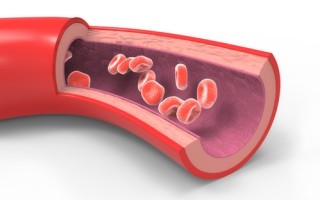
Has your physician ever told you or someone you know that you have high cholesterol? This diagnosis is one of the main reasons to why most Americans see cholesterol as a negative part of the body. While high levels can be dangerous in regards to heart disease, cholesterol is actually required for your cells to function normally. It is a waxy substance produced in the body and assists in the production of hormones, vitamin D and bile salts.
Why is cholesterol misunderstood?
Though some cholesterol comes from dairy or meat consumption, the American Heart Association revealed that 75 percent is naturally created within the body – specially the liver. Cholesterol is a complex substance that is neither all good or all bad. Much of the negative coverage cholesterol receives is due to the 65 million Americans who suffer from cardiovascular disease or the one million people who suffer from heart attacks every year.
"65 million Americans suffer from cardiovascular diseases."
In light of this, a clear distinction should be made between low-density lipoprotein (LDL), which is commonly called bad cholesterol, and high-density lipoprotein (HDL), which is known as good cholesterol. The American Heart Association states that LDL buildup leads to plaque accumulation in the arteries, which can lead to heart disease. Meanwhile, HDL sends this bad cholesterol to the liver, where the organ then breaks it down and rids it from the body.
As one in every three deaths in the country is due to cardiovascular disease, reducing cholesterol levels has been a priority for many dieticians and physicians. While important, Chris Kessler explains that CVD is one of the most frequently misunderstood and misdiagnosed diseases. After all, despite the bad name cholesterol gets in the medical community, Healthline explains that it is needed to:
- Assist in bile production in the liver.
- Aid in the creation of sex hormones.
- Serve as a building block for human tissues.
How can cholesterol be beneficial for my body?
Most experts recommended eating foods low in saturated fats, exercising regularly and watching your weight will all help lower your risk for CVD. Despite CVD, Dr. Natasha Campbell-McBride said there are many benefits to cholesterol's presence in the body. According to Campbell-McBride, cholesterol can protect against infections as people with low blood cholesterol levels can be more susceptible to infections.
Additionally, the misguided fear of cholesterol intake has contributed to a nationwide vitamin D deficiency. This lack of vitamin D leads to diabetes, mental illness, obesity, muscle diseases, cancer and more. While cholesterol is produced naturally in the body, it's important to supplement this by eating foods that are rich in food cholesterol in order to boost vitamin D production.
For additional information about the GAPS Diet and how to get started, you can consult with a Certified GAPS Practitioner and visit our website today!

